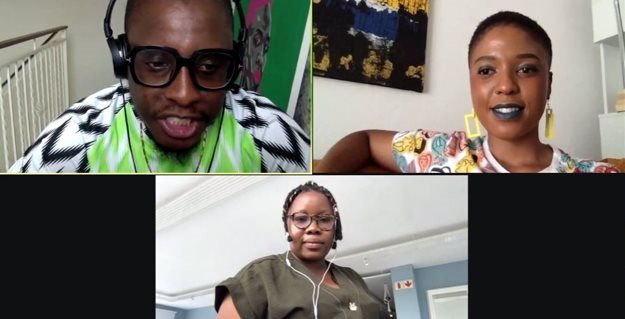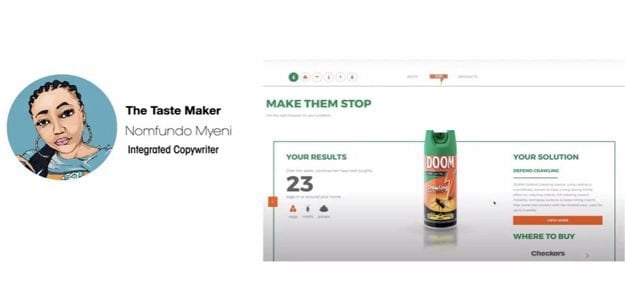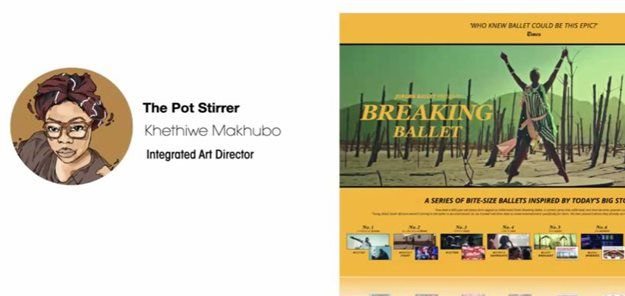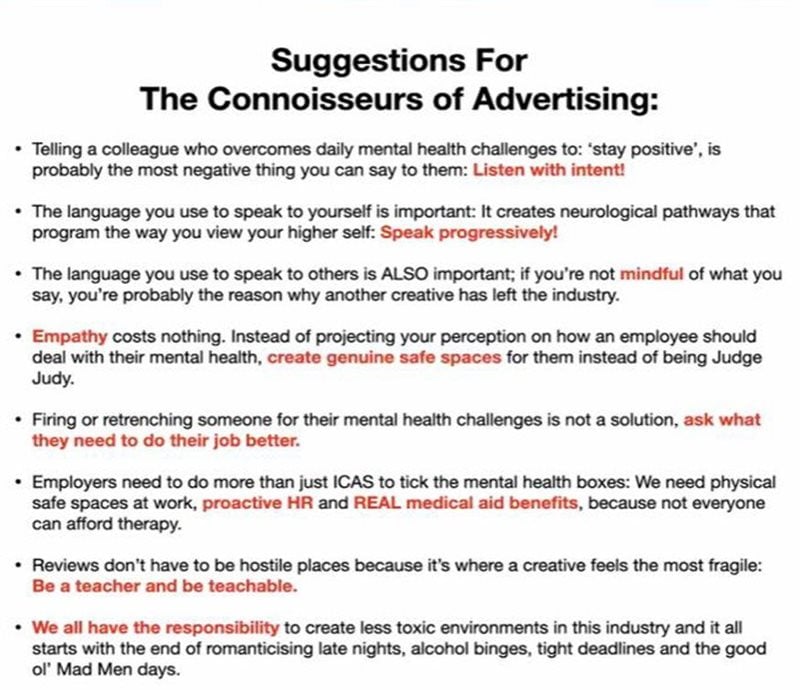"The future of advertising is Black, female and healthy"

Sindiso Nyoni opened his talk by thanking the Loeries for providing a platform to share his journey, but doesn’t waste any time to tackle the subject at hand and welcomes Nomfundo Myeni, an integrated copywriter and Khethiwe Makhubo, an integrated art director, to talk around the topic of "The future of advertising is Black, female and healthy".
The two women explain and share their experiences of being Black females in the world of advertising.
The duo created an initiative called 'Table for 2' that looks at solutions for the future for Black females in the advertising industry and encourages other young creatives to not become a victim.
Khethiwe Makhubo started talking about the work she's done, saying, “As everyone knows, in this industry you are judged by the work that you put out and the awards that you pick up.” Myeni goes on to say that because this is a Loeries platform, it only makes sense to brag a bit for what they have achieved.
Nyoni stepped in to introduce himself and shared that he uses his visual artistry to address pressing social issues that really matter.
Nomfundo Myeni, an experienced integrated copywriter, shared a piece of her work that she has worked on and calls it somewhat bittersweet. She was one of the writers involved in putting the copy together for this specific website.

Myeni believes that she was one of those unfortunate creatives who wasn’t credited for her work. After back and forth, she was eventually credited, but there was still one issue – her name wasn’t spelt correctly.
Makhubo, who refers to herself as “The Pot Stirrer” shared a piece of work she’s worked on, but isn't well known for. She unpacked her experience with an agency she worked for.

She says after a two-year fight to get her voice heard, she realised that she is a young, Black female in the advertising industry. The piece of work had won many accolades. For her, it is more of an issue of why having diverse workspaces works. This piece of work is why Black female creatives have to put up a fight.
I had fight to be heard. I had to fight to not be ignored and silenced.
Mental health
Myeni believes it is important to have the conversation around mental health, especially when it is involved the creative process. She says that like any other person who suffers from depression or anxiety, they use humour to break free.
She was working at a particular agency and had the following question, “What do you do when you have one writer doing the job of three people?” Metaphorically, this meant being the sole breadwinner in a household. She believes a lot of Black creatives can relate to “being the man of the house” and starting their own life.
When you are the one that will change the narrative of your family, it’s a different ball game.So when you put that all in the mix, you eventually burn out. When the concern was raised at the specific agency, she voiced her opinion that she can't actually do all the work by herself.
The short of the story, was that she was cornered by the agency to leave because she needed time to see a therapist, but at the same time couldn’t afford to not come to work. The other option was that there was a retrenchment package to choose, but none of these felt like options for her. These didn’t feel like solutions and there wasn’t anything positive about the experience, she says.
Myeni felt that her health came first and took the mutual retrenchment package.
Trust
Although Myeni’s experience is tailored to her. On social media, she posed the question of giving trust when it comes to mental health-related disorders in the advertising industry.

She received an overwhelming response of no, but was expecting to hear from others' experiences and how they handled the situation differently.
Myeni has now learned to vocalise and believes that there is magic when you vocalise and start seeing solutions.
Solutions
Myeni shared the below suggestions to put on the table:
For more of our Loeries Creative Week coverage, go to our Loeries special section.
About Evan-Lee Courie
- #AfricaMonth: A look at music publishing in SA with Eddie Hatitye of Music In Africa Foundation - 24 May 2022
- #Newsmaker: Karena Crerar, new Edelman Africa CEO - 24 May 2022
- Wonder celebrates a year of leading purpose-based brands - 24 May 2022
- kykNET's Kassie-Kuiers reaches 500,000 views in six months - 18 May 2022
- Castle Lager to embrace township economy in new brand positioning - 17 May 2022
View my profile and articles...
